
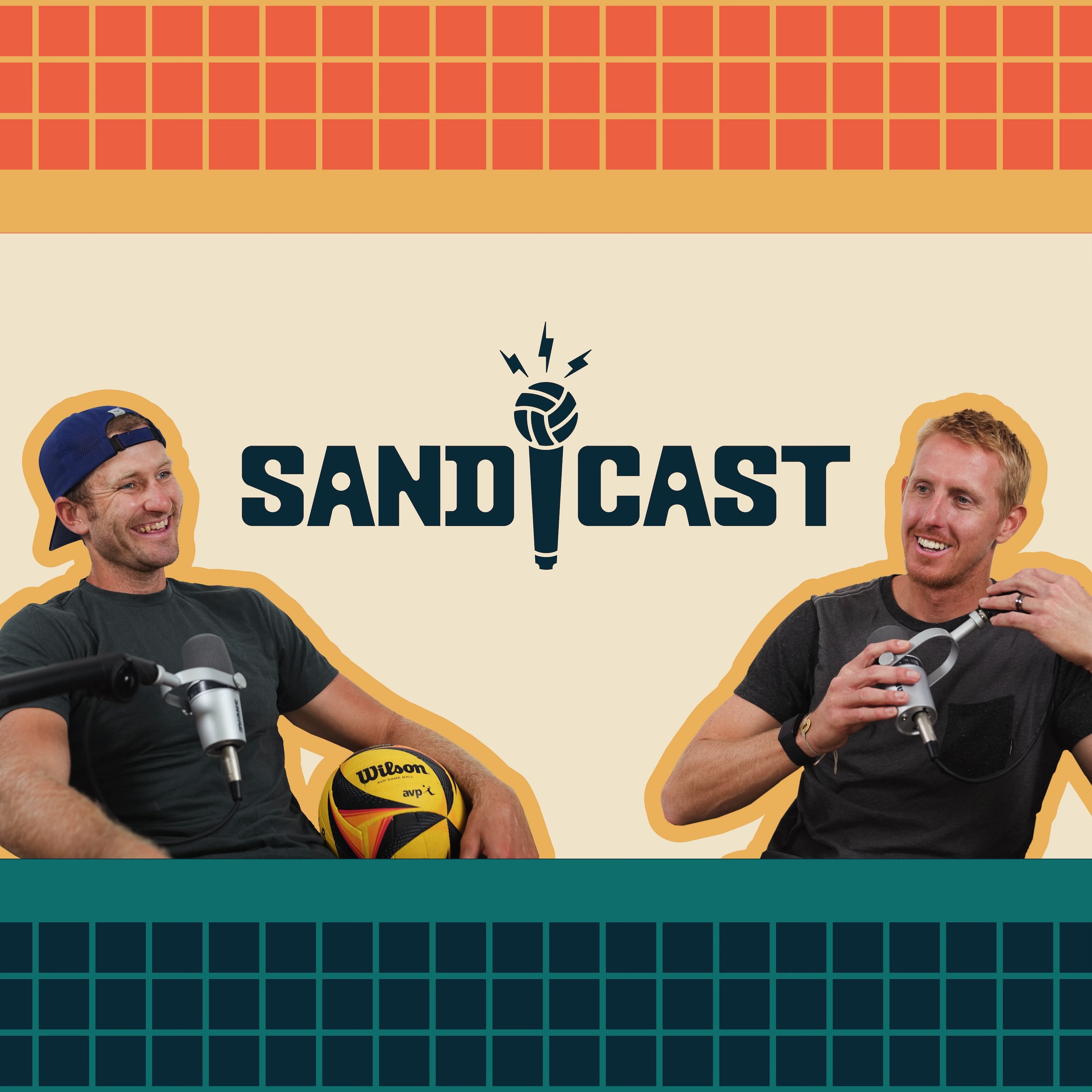
1.1M
Downloads
467
Episodes
SANDCAST is the first and leading beach volleyball podcast in the world. Hosts Tri Bourne and Travis Mewhirter take listeners into the world of the AVP, Volleyball World Beach Pro Tour and any other professional beach volleyball outlets, digging deep into the lives of the players both on and off the court as well as all of the top influencers in the game.
Episodes
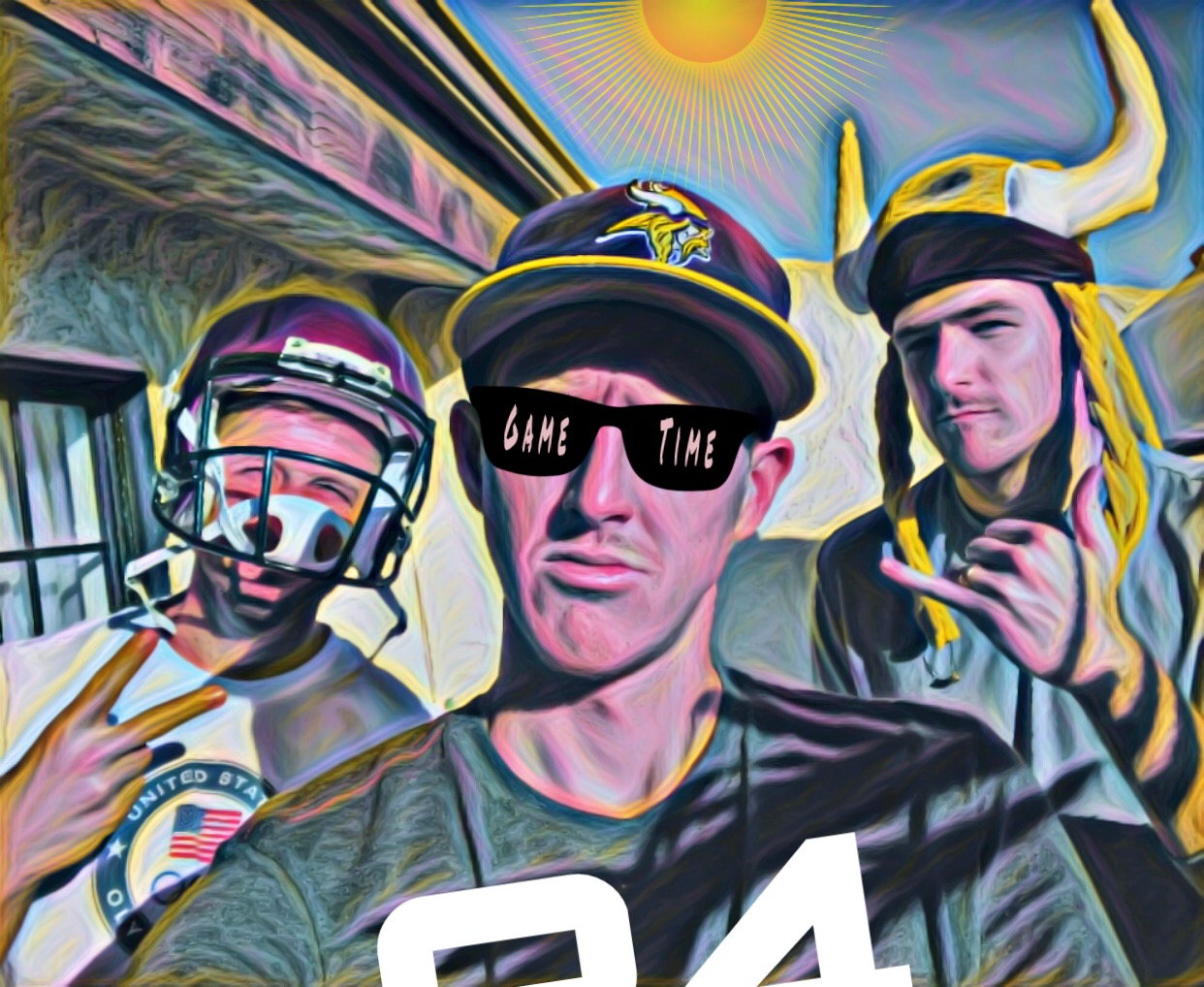
Monday Jan 22, 2018
BONUS: Bourne is (almost) back on the beach, with Murphy Troy
Monday Jan 22, 2018
Monday Jan 22, 2018

Wednesday Jan 17, 2018
SANDCAST No. 12: Talkin' sh** with Trevor Crabb
Wednesday Jan 17, 2018
Wednesday Jan 17, 2018
If you didn’t get to the Hermosa Beach Pier early on July 22, you would have been too late. There would have been no seats left, nowhere for you to watch the first clash of the Crabbs, Taylor and Trevor, brothers and former partners turned, it seemed, bitter rivals.
This wasn’t even the final – that would be a day later. This was the quarters, an oft-ignored round, one normally you’d sit and watch should you be there but not one to schedule your day around. And, yet, of course, this was no ordinary quarterfinal. This was a can’t miss match, on a Saturday.
The reason can be effectively summarized in two words: Trevor Crabb.
***
You may not like Trevor. You may love him. There’s a better chance you’re in one camp or the other, and not in the gray area in between, which is as much a societal trend as it is one regarding the elder of the Crabb brothers.
He likes that it’s quite possible he’s in a similar – relatively speaking – popularity category as Tom Brady and LeBron James, who are, paradoxically, both the most liked and disliked players in their respective leagues. He digs how much attention his verbal digs get – sand-throwing fools and goggle-wearing fools and a hungover fool.
His mouth has earned him almost daily jabs on social media from Ty Loomis (the sand throwing fool) and the on-court animosity of his brother, Taylor (the hungover fool), who reserves stare downs across the net almost exclusively for Trevor. Maddison McKibbin was at his most vocal when he and Loomis played Trevor and Sean Rosenthal in Hermosa Beach on July 21. It wasn’t much of a match, with Crabb and Rosenthal winning 21-16, 21-13, and yet the interest in it never waned, so close were the possibilities for explosions.
Thanks, in large part, to the fuses that Crabb had lit.
He did not invent trash talk on the beach.
But Crabb has done what we can to revive it in what has been a largely amicable half-decade for the AVP under Donald Sun.
He still laughs at the attention it gets, because when you think about it, what, in the wide scheme of sporting trash talk, has Trevor Crabb really done? He called Loomis a sand-throwing fool, though Loomis is the first to take immense pride in his quirky celebrations, in which he is, indeed, making himself as sandy as possible, either by showering himself with it or rolling in it. Crabb called Slick a goggle-wearing fool, and indeed, Slick does wear military-grade goggles to shield his eyes. Taylor Crabb’s hard-partying ways are hardly breaking news.
All three give it right back, too. Most of this is good-natured. Some of it flirts with the line of needling and perhaps a bit too far. He’s not altogether concerned either way.
“That’s what makes it fun,” Crabb said on SANDCAST: Beach Volleyball with Tri Bourne and Travis Mewhirter.
His most notorious rub is with Reid Priddy, a four-time indoor Olympian who, in his first year full-time on the beach, made the semifinals of the Manhattan Beach Open, where he met Crabb and Rosenthal. Crabb blocked Priddy early, and by Crabb’s accounting of the event, he waved for the crowd – and particularly to Rosie’s Raiders – to grow louder. Priddy, according to Crabb, told him to try to block the next one with his eyes open.
Crabb says he told Priddy to go back to indoor.
Some have said Crabb went further, that he made things personal. On SANDCAST, Crabb shrugged it off and said that was basically that.
Either way, when the match ended, there was an icy standoff between the two. The beach volleyball world subsequently lost its collective mind, and had you been following it purely on social media, you might have thought they brawled instead of played.
They simply walked opposite directions.
It’s a wonder what the reaction would have been to a player like, say, Kent Steffes, or Tim Hovland or Steve Obradovich, some of the sharpest, brashest trash talkers the game has known, bastions of a bygone era.
In 1992, three years after Crabb was born, Steffes, who remains one of the most well-known American beach volleyball players, told the Los Angeles Times that "I'd been taught aggressive, loud-mouthed, obnoxious volleyball. You try to humiliate the other team because they're trying to humiliate you. I didn't go out to win, I went out to destroy."
And, much to the delight of beach volleyball fans – and there were tens of thousands of them back then – that in your face style made for some provocative matches, on the court and off. Later that year, Steffes had Randy Stoklos running so hot that Stoklos followed him to his hotel after a match and they nearly came to blows. Steffes told the New York Times the next day that "you know why Randy and I got in that fight? Because I blocked him at 13-all to break open the game, 14-13. And I went, 'Yeahhhh.' And I turned around and high-fived Karch. And he thought I shouldn't cheer when I blocked him, that he'd been involved in the sport for so long, he'd played for 10 years, that I ought to respect him enough not to cheer when I block him. Have you ever heard anything so asinine in your life?"
Sound familiar?
In 1996, when Steffes was informed that Stoklos had twisted his ankle and wouldn’t be anywhere close to 100 percent for their Olympic trial match the next day, the one to qualify for Atlanta, he shrugged and deadpanned: “Good. I hope it’s broken.”
That was volleyball then – loud, merciless, unapologetic.
“Anything goes,” Sinjin Smith told the Los Angeles Times in 1994. “Yelling, screaming, fighting – and all of it happened. In any given match, it was pretty crazy. And very, very entertaining to the public. Players would end up going into the crowd and actually mixing it up with the crowd and each other. You just don't see that today."
It wasn’t only reserved for the bad boys. No, even Karch Kiraly, the G.O.A.T, the golden boy, one of the most likable humans there is, took swipes at Smith prior to the 1996 Olympic Games. He told the press that Smith, who was nearing 40, might need a wheelchair to be brought out on center court. He lashed out at – and has since apologized to – Carl Henkel, Smith’s partner in the 1996 Olympics, too.
“Every time Karch had a microphone he was badmouthing Sinjin,” Henkel told me last winter, during an interview for a beach volleyball book.
Karch Kiraly? Bad mouthing?
Are Crabb’s antics all that different?
Perhaps the beach volleyball world has become a bit sensitive. Crabb’s volume of trash talk pales in comparison to the Golden State Warriors’ Draymond Green, whose prodigious mouth earns him technical fouls and fines by the month. And besides, Crabb’s never intentionally kicked someone in the nuts. It pales in comparison to the Redskins’ Josh Norman, or former Viking great Randy Moss.
Heck, even Jordan Spieth will mix it up on the PGA Tour.
Perhaps you’d like Crabb to shut up. Just play volleyball. Maybe win a tournament before chiding those who have, like Taylor or Loomis or McKibbin or Slick.
But you cannot deny this: When Trevor plays, you’re going to watch.
You’re going to listen.
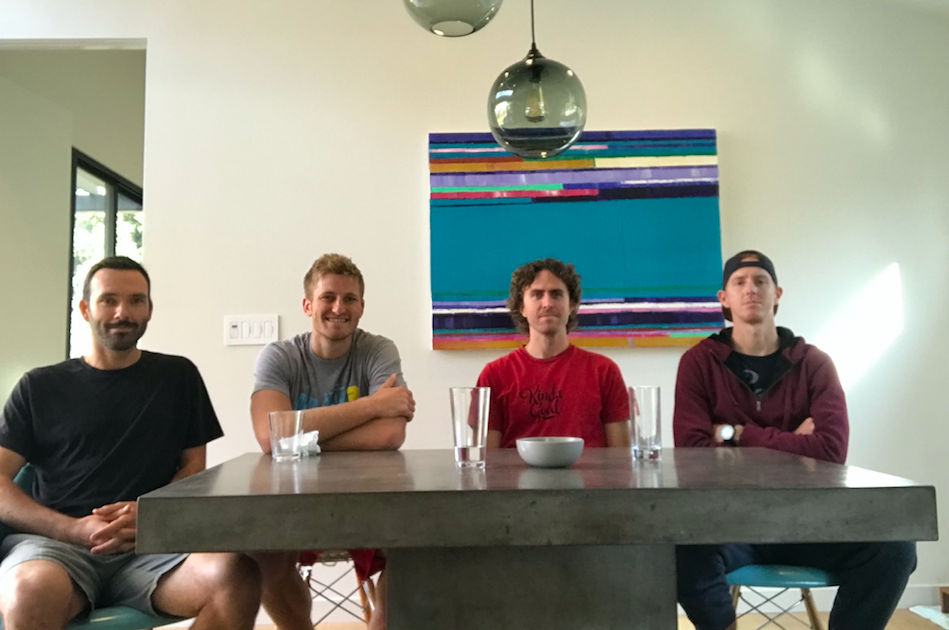
Wednesday Jan 10, 2018
SANDCAST Your Brains Out with Billy Allen and John Mayer, Part 2
Wednesday Jan 10, 2018
Wednesday Jan 10, 2018
It’s a wonder how they’re not brothers, John Mayer and Billy Allen. Similar demeanors – calm, collected, neither too high nor too low. Similar styles of play – crafty, ball-control-oriented, hyper-efficient. Similar hobbies – reading, coaching, dadding.
Mayer thinks Allen has always been the better of the two. Allen thinks the same about Mayer. Any pandering to the crowd is done mostly in jest, Allen flexing after a float serve ace or a poke kill, though that’s more than Mayer will generally do. He might offer the slightest of smiles.
One of their chief similarities one might notice – and will inevitably notice if you listen to their podcast, Coach Your Brains Out – is the importance they place on mindset, emphasizing the difference between a fixed mindset and a growth mindset.
“One thing I’ve learned is that we all have fixed mindsets and we don’t even realize we have fixed mindsets,” Mayer says on SANDCAST: Beach Volleyball with Tri Bourne and Travis Mewhirter. “It’s really hard and the shift is never ending.”
And neither, it’s become evident, is their improvement.
Mayer, after making just three career AVP finals in his first 11 years on Tour – it should be noted that he also made a pair of Corona Wide Open finals in 2011 – made four in 2015 alone, winning in New Orleans with Ryan Doherty. It culminated in him being named AVP MVP.
Allen has seen a similar ascent. From 2004-2015, he failed to make a single AVP final, which set up a breakout pair of seasons in 2016 and ’17, winning his first career AVP in Seattle in 2016 with Theo Brunner and following it up the next year with Stafford Slick. His win with Slick was sandwiched between a pair of finals appearances, the first in New York, where he fell to Taylor Crabb and Jake Gibb, and then San Francisco, where an injury limited Slick.
Allen and Mayer discuss their ascents, their shifts in mindsets and what their future looks like on SANDCAST.
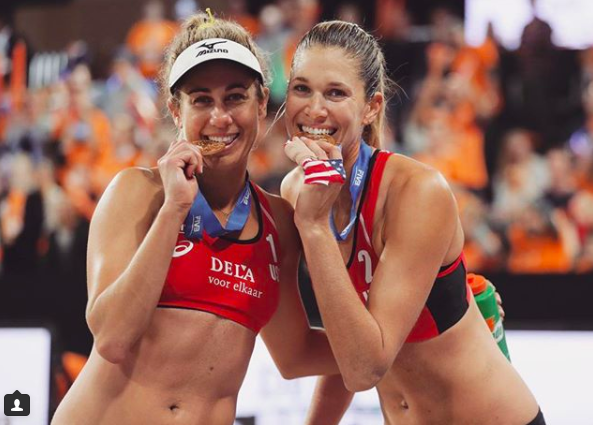
Monday Jan 08, 2018
SANDCAST BONUS EPISODE: Breaking down The Hague with Trevor Crabb
Monday Jan 08, 2018
Monday Jan 08, 2018
The 2018 beach volleyball season is, remarkably, upon us. In a way, at least.
The FIVB kicked off the 2018 year in the very first week of the year, hosting an indoor beach tournament at The Hague, a four-star event to open the season, hauling in a variety of new partnerships and unfamiliar faces.
One of those new partnerships, of course, was that of April Ross and Alix Klineman, who took the longest road possible, battling through a pair of country quota matches, two more in the qualifier, and then running off six straight-set wins in the main draw to claim gold, beating Brazil’s Maria Antonelli and Carolina Salgado – another team that came out of the qualifier – in the finals.
“I’m going to be riding high on this win for awhile and this week in The Hague was a blast,” Ross wrote on Instagram afterwards. “Pretty excited or this journey.”
It was Klineman’s first international beach tournament, though far from her first time on a big stage, having played on both the Brazil and Italian indoor leagues.
As for the rest of the U.S. teams, though, it wasn’t quite the start to the year many would have desired.
Sara Hughes and Kelly Claes finished ninth, while Brooke Sweat and Summer Ross took a 17th and Lauren Fendrick and Karissa Cook finished 25th. The men didn’t fare much better, with the new partnership of Billy Allen and Ryan Doherty claiming the highest finish of American teams at ninth. Casey Patterson and Stafford Slick and Miles Evans and Billy Kolinske both finished 17th.
"It was definitely a little weird overall," said Trevor Crabb, who failed to make it out of the qualifier, on SANDCAST: Beach Volleyball with Tri Bourne and Travis Mewhirter. "Me and [Sean Rosenthal] pretty much decided we won't practice together before we left for the trip because I went back to Hawaii for the offseason and pre-season for six weeks, doing some training there, and I'm not exactly sure how much training he was doing. It was so early in the year, it's the end of off-season and beginning of pre-season, and it affected us for sure."
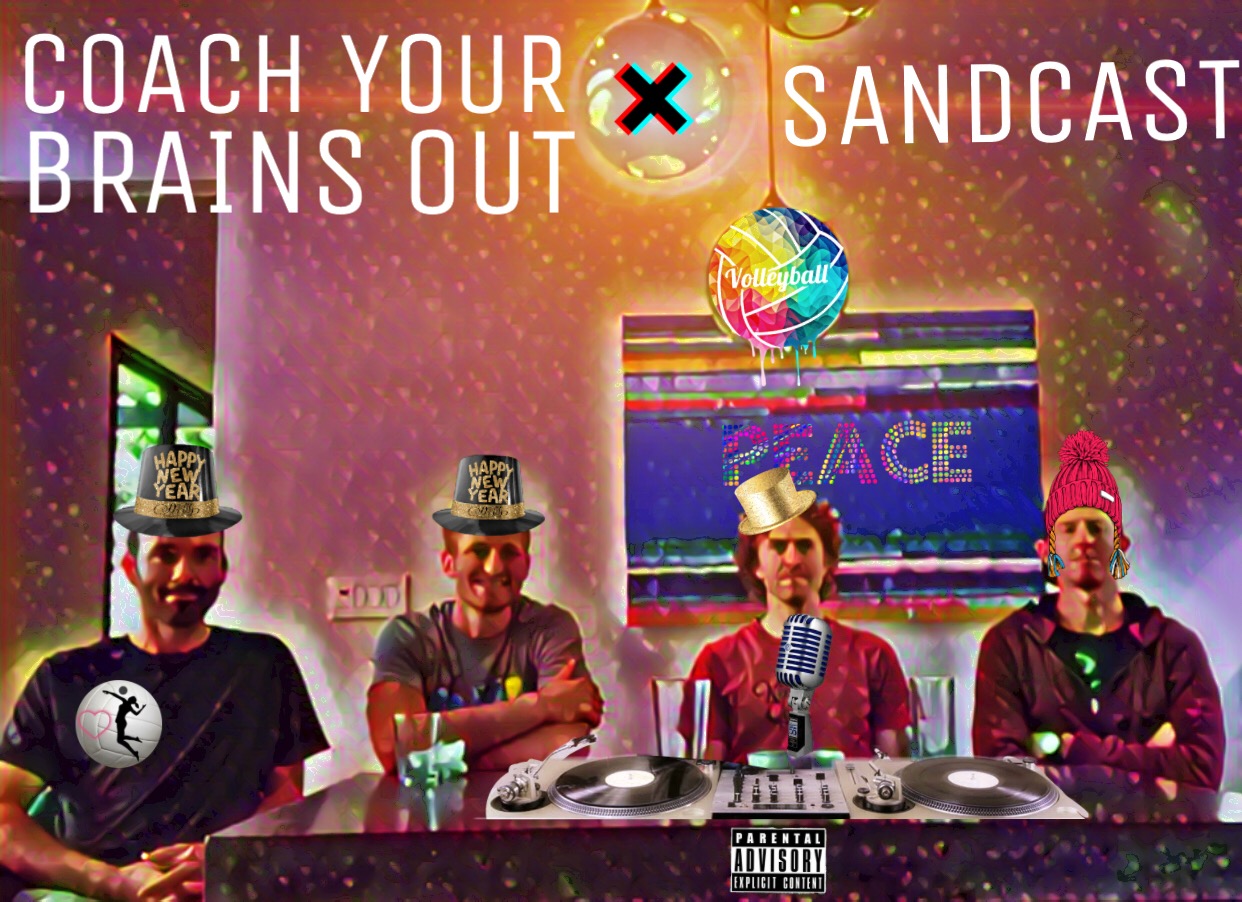
Wednesday Jan 03, 2018
SANDCAST Your Brains Out with Billy Allen and John Mayer, Part 1
Wednesday Jan 03, 2018
Wednesday Jan 03, 2018
Much to the disappointment of the listeners of Coach Your Brains Out and SANDCAST: Beach Volleyball with Tri Bourne and Travis Mewhirter, there will be no Anchorman-esc battle between the two podcasts.
We’re now on the same team.
That’s right. VolleyballMag.com is now the distributor for both podcasts, which are as similar as they are different, both focusing on the same sport while diving into it in vastly dichotomous angles.
Coach Your Brains Out began as many podcasts do: A few friends with a similar interest, an iPhone, and a bit of editing know-how. John Mayer, Billy Allen and Nils Nielsen put an iPhone on a table and just talked about whatever volleyball and coaching topics came to mind. Allen would edit, they’d post, and, as they joke frequently on the show, maybe a few people would even listen.
They enjoyed doing it. Soon, they realized more than a few actually enjoyed listening. The show expanded in every way a podcast could. The audience grew, the technology evolved from one iPhone to a few mics. Guests have been some of the top performers in their respective spaces, including the likes of volleyball legends Phil Dalhausser and Karch Kiraly, authors Joshua Medcalf and James Kerr, and coaches John Kessel and Tom Black, among dozens of others.
It isn’t just coaching they analyze, but traits and features of high performing individuals and teams, digging into the various recipes for greatness, both physiological and psychological.
“Around the time we were starting it we were turned on to ideas like Train Ugly’s website, a lot of ideas like motor learning and different ways to teach the game,” Allen said. “That was a lot of what sparked our first couple episode and we were fired up on that. Before we did the podcast it was fun to pick [John’s] brain and just talk, that kind of stuff, and now we’re still able to do that and get some great coaches from around the world too.”
“We try to find people striving for mastery in whatever they do,” Mayer added. “Whatever ways we can find to be our best.”
Coach Your Brains Out publishes on Thursdays, typically in 30-minute episodes.

Wednesday Dec 27, 2017
SANDCAST No. 9: Chase Frishman, and the next wave of AVP talent
Wednesday Dec 27, 2017
Wednesday Dec 27, 2017
It has become impossible to ignore: The top players in the United States are getting older. Nick Lucena is 38. John Hyden, ageless as he may be, is 45. Casey Patterson is 37, as is Phil Dalhausser and Sean Rosenthal. Jake Gibb is 41.
“We’re definitely holding it down for USA Volleyball,” Phil Dalhausser said last week on SANDCAST: Beach Volleyball with Tri Bourne and Travis Mewhirter.
Holding it down until a new wave of talent establishes itself to fill in for the longtime veterans and representatives of the United States on the world stage. Chase Frishman is one of the most likely members of that next wave, and he considers himself to be, as he should.
In just his second year on the AVP Tour, Frishman, partnered with Avery Drost, made his first semifinal, in Hermosa Beach, where, he admits on SANDCAST, “we got our bell rung.” By year’s end, the 26-year-old nearly tripled the prize money from his Rookie of the Year campaign in 2016, taking five top-10 finishes in 2017 as compared to two in 2016.
With Lucena, Hyden, Patterson and Rosenthal having, at most, one more quad left in them, Frishman sees himself as part of a group of four up-and-coming defenders under 30, including 25-year-old Taylor Crabb – “the golden boy,” Frishman says – 24-year-old Eric Zaun, and 28-year-old Miles Evans.
He’s not wrong. One aspect the three of them have in common is a Rookie of the Year Award, with Frishman succeeding Crabb and Zaun succeeding him. Evans has only played in one AVP main draw, choosing instead to compete internationally this past season with Billy Kolinske.
But Frishman, of course, has one element those three – or anyone else on tour not named Sean Rosenthal, for that matter – do not have: Ledge’s Legion.
Aside from the infamous Rosie’s Raiders, Frishman boasts the largest, loudest, rowdiest crowd on tour. They’ve bestowed themselves the nickname ‘Ledge’s Legion’ as an eponym of Frishman’s nickname, ‘Ledge,’ doled out because, as his former partner Mike Brunsting said, “When you watch him play, he just looks like a legend.”
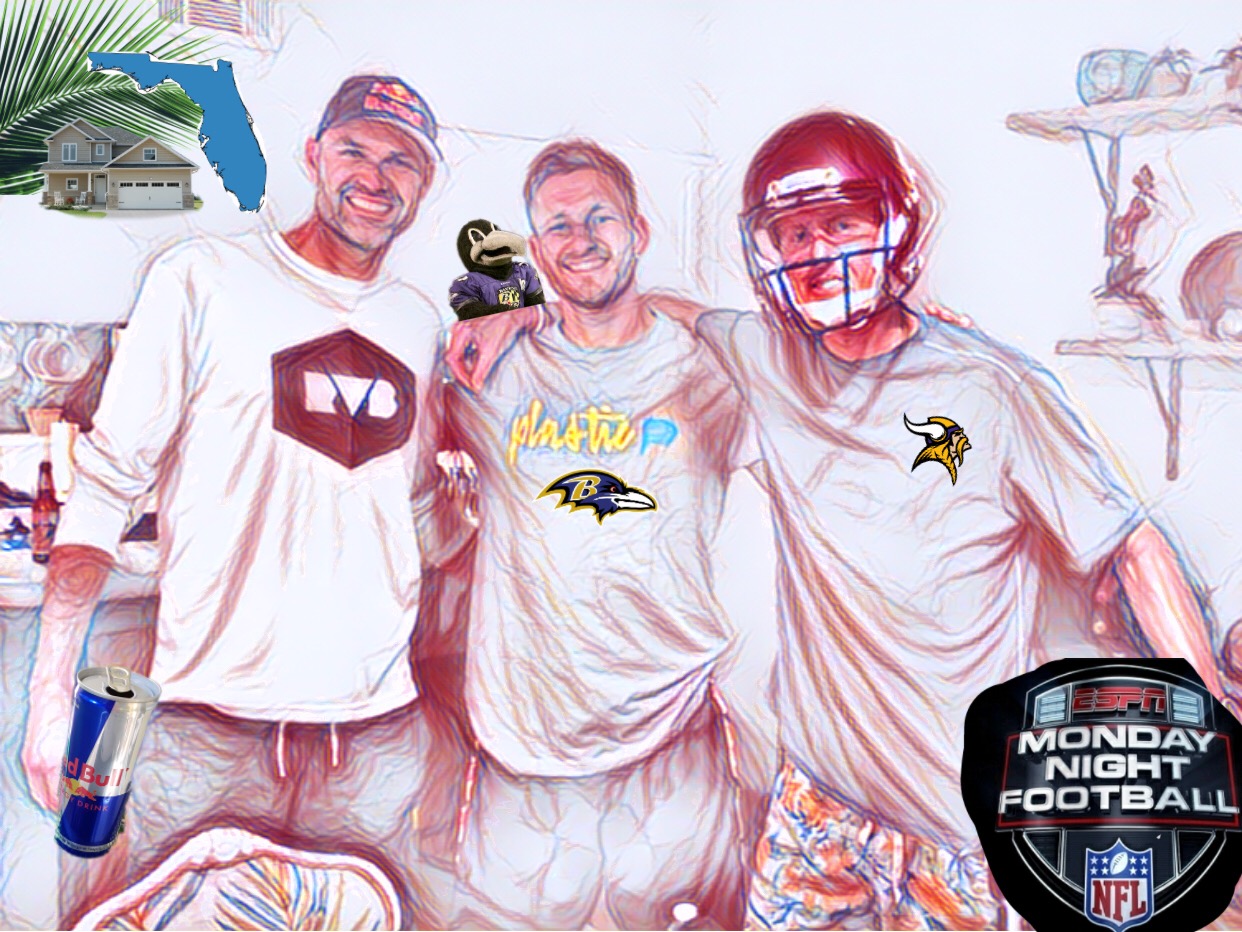
Wednesday Dec 20, 2017
SANDCAST No. 8: Phil Dalhausser has another mountain to climb
Wednesday Dec 20, 2017
Wednesday Dec 20, 2017
There is little that Phil Dalhausser has yet to accomplish in beach volleyball. He’s won more than 50 tournaments domestically and another 30-plus internationally. He’s won an Olympic gold medal and owns the longest active win streak on the FIVB Tour, having won a tournament in each of the past 12 years. But the 37-year-old Dalhausser isn’t finished. Not yet.
He has a Defensive Player of the Year to win. Just kidding. Maybe.
You’ll recall that Dalhausser did make the finals in the AVP’s season finale in Chicago split-blocking with Nick Lucena, and the one award that the Thin Beast has yet to win in his lavishly long list of awards is a Defensive Player of the Year.
“If I could play with Evandro [of Brazil], we could just sit back and bomb serves and whatever, if we dig a ball it’s a bonus,” Dalhausser said on SANDCAST: Beach Volleyball with Tri Bourne and Travis Mewhirter. “And playing behind Evandro would be a lot easier than playing behind Nick.”
He’s joking, though it speaks to Dalhausser’s brilliant career that he is devoid of just one accolade, for a position he doesn’t play. He has no plans – “no shot” – to split-block (Chicago is likely a one-time ordeal), for Dalhausser does indeed still have mountains to climb.
He wants a World Championship. He wants another Olympic gold in Tokyo 2020.
But first, he’s bidding farewell to California. Dalhausser and his family are packing up and moving to Orlando, just a few hours from Lucena in Tallahassee.
“It’s a little bit of risk as far as volleyball goes,” he said on SANDCAST. “There will definitely be a transition.”
A transition back to their roots. Dalhausser and Lucena have been close for more than a decade, having met playing against one another in Florida, when Dalhausser was at Central Florida and Lucena at Florida State.
Their respective journeys have taken them from northwest Florida to South Carolina to Southern California and now, for the final act of their decorated careers, back home.
“I’d like to grab the 2019 World Champs and 2020 Olympic gold,” Dalhausser said. “That’s the goal. We’ll see what happens.”
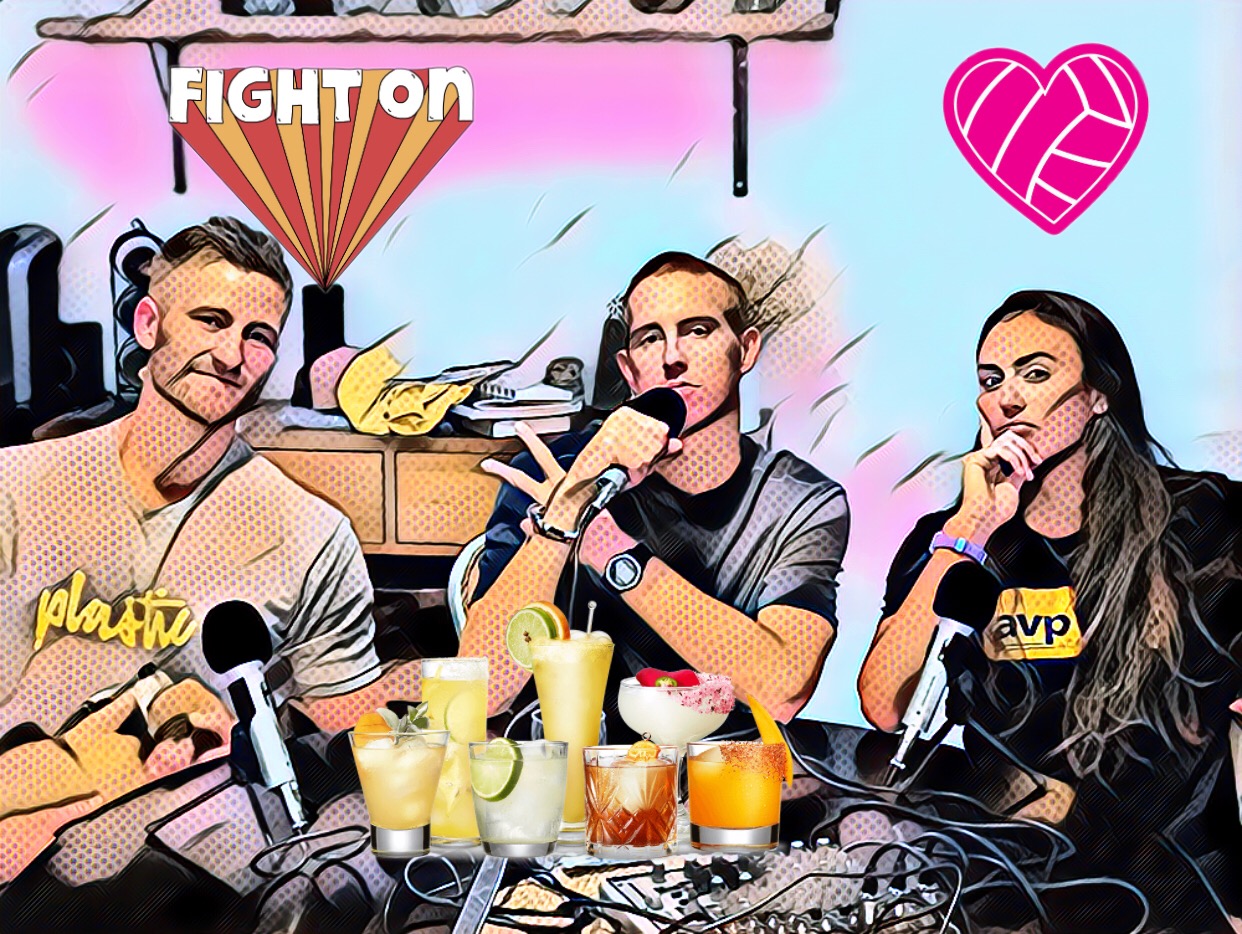
Wednesday Dec 13, 2017
SANDCAST No. 7: Geena Urango, the intern who dug her way to the top
Wednesday Dec 13, 2017
Wednesday Dec 13, 2017
Geena Urango didn’t expect to be playing on the AVP Tour. After playing volleyball for five years at USC – four indoors, one on the beach – Urango, who studied digital marketing, was just stoked to have a job: Interning with the AVP Tour.
“My first day on the job I get called into Donald [Sun’s] office just to do a little meet and greet,” Urango recalled on SANDCAST: Beach Volleyball with Tri Bourne and Travis Mewhirter. “He’s like ‘Yeah, so you’re going to play too, right?’ And I was like ‘What?’ I didn’t even know that was an option.
“Just that one sentence sparked it.”
That question was both a blessing and a burden for Sun, who was able to retain Urango for a year and a half before Urango ultimately realized that she still had a passion for the game, to the point that she quit her job with the AVP to focus full-time on her career as a player.
Her decision has proved to be prescient. Since concentrating on beach – she still freelances as a marketer – Urango has become one of the top defenders on the AVP Tour, making four finals over the course of the 2015, ’16, and ’17 seasons with partner Angela Bensend. It was a partnership that began on a last-minute scramble prior to the 2015 Manhattan Beach Open and has since become one of the most recognizable on Tour, both for their play, their nickname – “TexMex” – and garish bikinis, kudos of Goldsheep.
“Benny and I, what was great about playing together, we were always on the same page, what our goals were for the season,” Urango said. “Each season we progressively got better and better, so it was ‘Why break what’s not broken?’ We had a great balance. She was fiery and brought a lot of energy and I was more calm and collected.”
Bensend, however, has since moved to Philadelphia, and with a balky back her future on the beach is uncertain, leaving Urango one of the more talented free agents on Tour.
For now, Urango is content traveling the world, snowboarding, spoiling her dogs.
Find our full show notes at VolleyballMag.com.
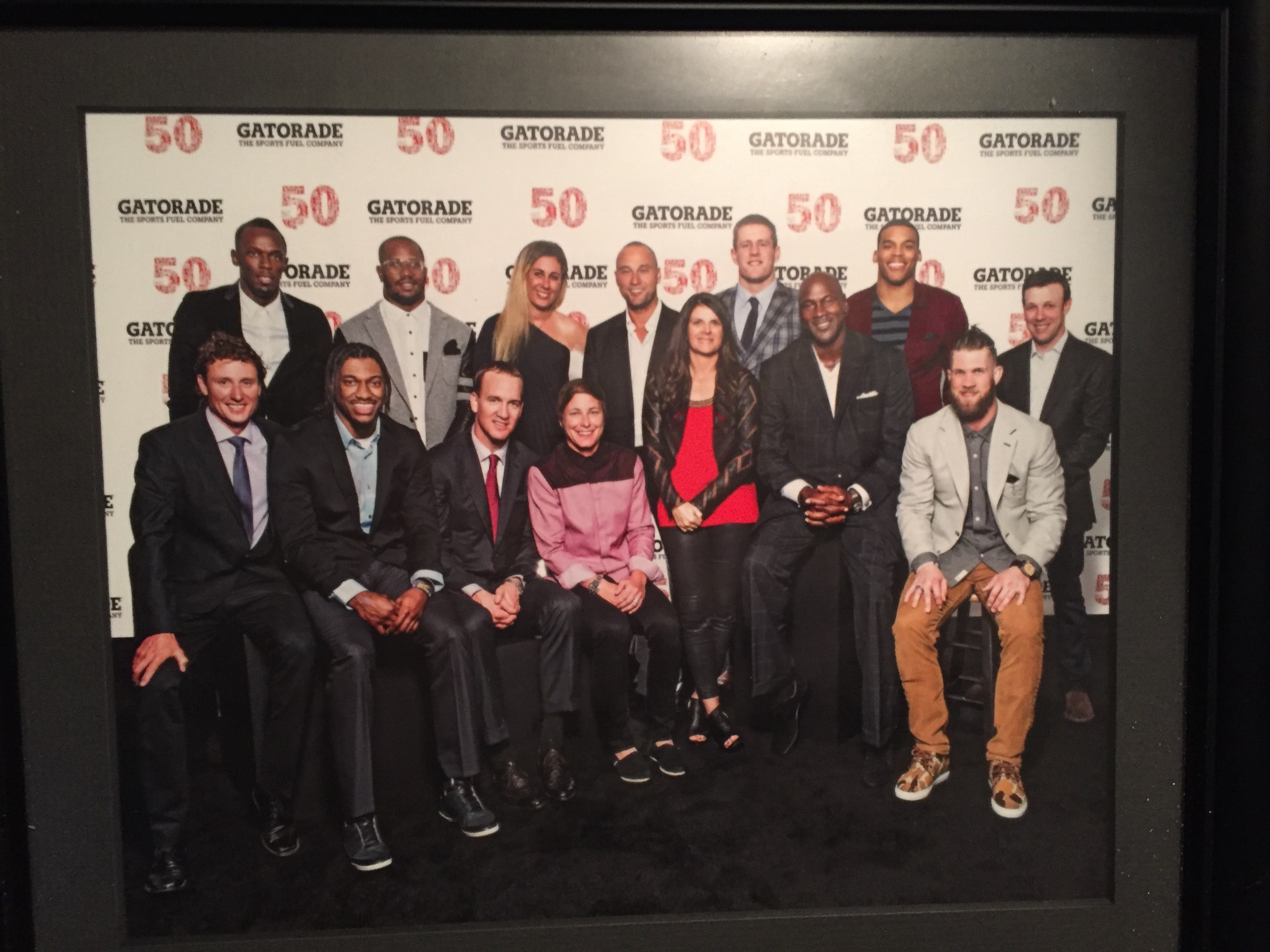
Wednesday Dec 06, 2017
SANDCAST No. 6: A glimpse into greatness with April Ross, Part 2
Wednesday Dec 06, 2017
Wednesday Dec 06, 2017
The cat’s out of the bag: April Ross is playing with Alix Klineman, a 6-foot-5 blocker out of Stanford.
On paper, the two will be a formidable pair, Ross one of the best defenders in the world, Klineman a standout indoor blocker who has an AVP final and a third under her belt. One problem: Klineman has just one year of full-time beach experience. The road to Tokyo 2020 will not be easy, though as Ross says on SANDCAST: Beach Volleyball with Tri Bourne and Travis Mewhirter, “it’s not supposed to be easy.”
“What is the meaning if what you’re doing if you’re not being challenged?” she says. “If you don’t have these things that will help you grow and things to help you overcome, what’s the point?”
On Part Two, Ross discusses the path ahead, the inevitable challenges ahead, her mindset moving forward, as well as pairing up with former partner Jen Kessy, who will be coaching Ross-Klineman through Tokyo, site of the 2020 Olympic Games. Ross and Kessy, of course, are one of the best teams in American beach volleyball history, medaling in 17 out of 20 FIVB tournaments in a stretch from 2008-2010, finishing with a silver medal in the 2012 Olympic Games in London, where they lost to Kerri Walsh and Misty May.
Few, if any, in the game know Ross’ style better than Kessy.
“One of the things I learned the importance of,” she said, “is building a like-minded team around yourself: having the same mentality, the same goals, the same work ethic are all really important. Alix and I don’t know each other very well but it’s funny how connected we feel.”
The first glimpse the beach volleyball world will have of Ross-Klineman will be in The Hague on January 3, where Ross, who has won 21 international tournaments, will likely be in a country quota.
“We’re training every day,” Ross said. “Doing everything we can to get better every day.”

Wednesday Nov 29, 2017
SANDCAST No. 5: A glimpse into greatness with April Ross, Part 1
Wednesday Nov 29, 2017
Wednesday Nov 29, 2017
There has only ever seemed to be one gear for April Ross: Go.
Such is how the Newport Beach native has garnered a laundry list of accomplishments that include, among others: A Gatorade National Player of the Year award at Newport Harbor High School; two national championships at USC (where she never even planned on playing, but more on that in Part 2); a two-year stretch with partner Jen Kessey between 2008-2010 in which she medaled in 17 of 20 FIVB events; an undefeated AVP season in 2014 with Kerri Walsh-Jennings; two Olympics medals, one silver, one bronze.
And every time Ross thinks it’s time to unwind, to relax – well, there’s always another mountain to climb.
“It’s so hard. It’s so hard. What I find happens is I convince myself to find that balance a little bit and not stress about it and not work so hard,” she said. “And then I’ll go to a competition, underperform, and I’m like ‘F this! I’m going to home, step it up. I’m not training hard enough, not focused hard enough. If you just want to win that bad – it’s so hard to take a step back and find that balance.”
This season was, as Ross describes it on SANDCAST, full of “hiccups.” A last-minute breakup with Walsh-Jennings, with whom Ross won a bronze medal in the 2016 Olympic Games, along with a toe injury that had more of an effect that she realized until she watched video of her approach, made for a mercurial year, though certainly not a bad one – not by most standards, anyway.
Ross still won a pair of AVP tournaments, in Austin split-blocking with Whitney Pavlik, and in New York defending for Lauren Fendrick. She still made the World Championship finals in Vienna, pushing the 2016 Olympic gold medalists Laura Ludwig and Kira Walkenhorst to three sets.
But one of those hiccups – having a constantly-changing partner situation – is resolved for 2018. In Alix Klineman, the 2017 AVP Rookie of the Year, Ross has partner stability once more.
“It was really hard to figure out what to do,” Ross said. “There weren’t many chances to compete and to try people out. It came down to really intangible things. I decided to go with Alix Klineman to take a shot at Tokyo.”